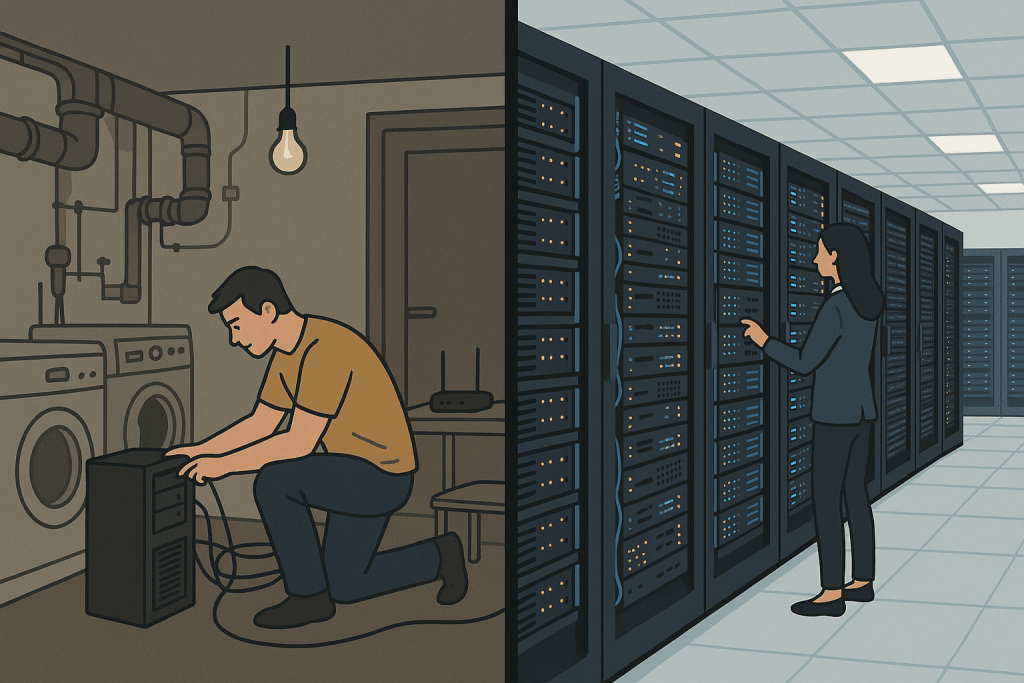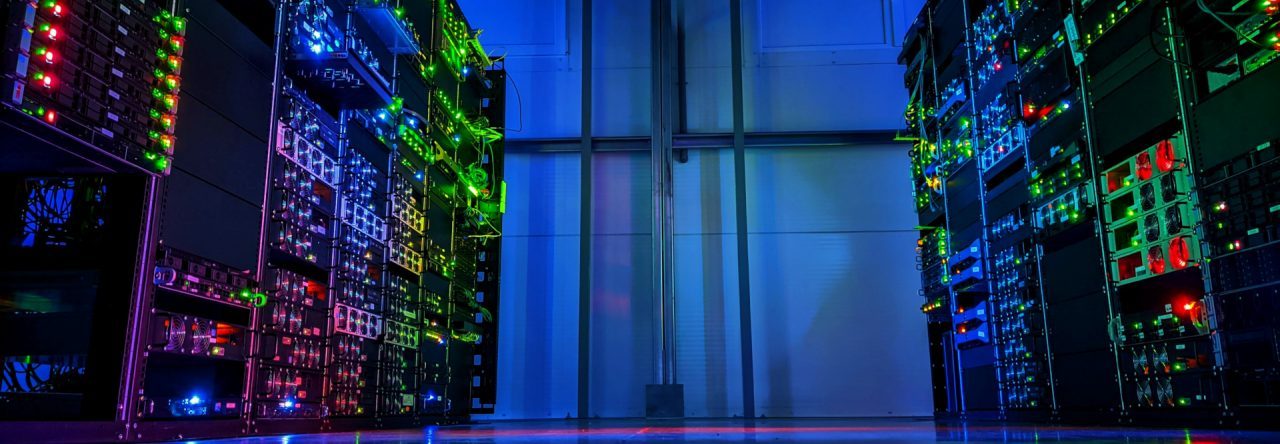
In today’s world, where data processing speed and uninterrupted service availability define business success, the question of where to place your servers has become strategically important. On one hand, it might seem convenient to have your own server “at hand” — in your office or even at home. On the other, professional data centers offer a level of stability, security, and efficiency that’s hard to achieve on your own. That’s why more and more companies and independent developers are choosing colocation — hosting their own equipment in specialized data centers.
Reliability and Uninterrupted Operation
One of the main advantages of a data center is continuous operation. Everything is designed to ensure that servers never go offline: from backup power and generators to sophisticated cooling and humidity control systems. Even in the event of a power outage or damage to a major internet line, a server in a data center will continue to function thanks to redundancy in critical systems. A home or office server can hardly handle such conditions — a single power surge or overheating incident can stop operations for hours or even days.
Optimal Internet Connectivity
Another strong argument in favor of data centers is the quality of their internet connection. These facilities are connected to multiple independent providers via high-capacity fiber-optic channels. This guarantees minimal latency and high-speed access from anywhere in the world. If your website or application serves thousands of users simultaneously, this factor becomes critical. In home or office conditions, achieving this level of stability is impossible — even the best ISP cannot provide the same redundancy that a data center can.
Data Security and Risk Protection
Physical security in data centers is just as important as cybersecurity. Modern facilities are equipped with access control systems, video surveillance, alarms, and fire suppression systems. Unauthorized access to server rooms is impossible. In addition, the environment is perfectly maintained — stable temperature, correct humidity, and air filtration. For businesses, this means that equipment operates longer and more reliably, with minimal risk of damage from external factors. Unlike in an office or apartment, where a server can be flooded, damaged, or even stolen, all these risks are eliminated in a data center.
Saving Time and Resources
At first glance, placing a server in a data center may seem like an extra expense. However, when you factor in the real cost of electricity, cooling, monitoring, and maintenance, the choice becomes clear: running your own server is actually more expensive. Add the cost of a stable internet connection, power backup, and protection systems — and the total grows significantly. In a data center, all these services are already included in the cost of colocation. You simply rent a rack space, and professionals take care of the rest.
Professional Technical Support
Another major advantage is professional technical support. Most data centers have engineers on duty around the clock who can quickly respond to any issue. If your server needs to be rebooted, a drive replaced, or diagnostics performed, this can all be done without your physical presence. In contrast, with a home or office server, you have to handle all these tasks yourself — not always possible during critical moments. For a business, such responsiveness can be crucial, as even a few minutes of downtime can lead to lost customers or revenue.
Scalability and Flexibility
Hosting your server in a data center also opens the door to growth. If you need to add new servers, increase power, or switch configurations, it can be done quickly without complex logistics. Everything is already in place — power, network channels, and cooling. For companies planning to expand, this is the perfect solution, eliminating the need to constantly rebuild infrastructure or purchase additional equipment for on-site hosting.
Why This Choice Makes Sense
Placing your server in a data center is a choice in favor of stability, security, and professionalism. It allows your business to focus on developing its products instead of managing technical details. A personal server under your desk is a thing of the past, while the data center represents the future — a space where every byte of data is protected, and every minute of uptime matters.
If you’re looking for a reliable place for your equipment, consider Server.UA — a modern Ukrainian data center that provides stable operation, system redundancy, and professional colocation for all types of business needs.

Leave a Reply